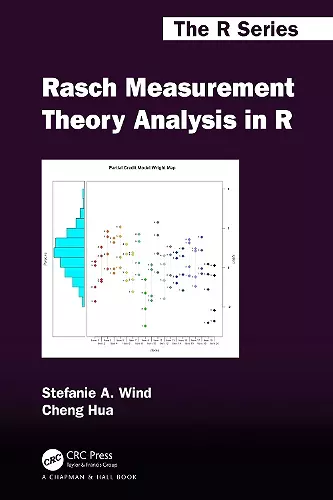Rasch Measurement Theory Analysis in R
Stefanie Wind author Cheng HUA author
Format:Paperback
Publisher:Taylor & Francis Ltd
Published:3rd Jun '22
Should be back in stock very soon
This paperback is available in another edition too:
- Hardback£160.00was £160.00(9781032005607)

Rasch Measurement Theory Analysis in R provides researchers and practitioners with a step-by-step guide for conducting Rasch measurement theory analyses using R. It includes theoretical introductions to major Rasch measurement principles and techniques, demonstrations of analyses using several R packages that contain Rasch measurement functions, and sample interpretations of results.
Features:
- Accessible to users with relatively little experience with R programming
- Reproducible data analysis examples that can be modified to accommodate users’ own data
- Accompanying e-book website with links to additional resources and R code updates as needed
- Features dichotomous and polytomous (rating scale) Rasch models that can be applied to data from a wide range of disciplines
This book is designed for graduate students, researchers, and practitioners across the social, health, and behavioral sciences who have a basic familiarity with Rasch measurement theory and with R. Readers will learn how to use existing R packages to conduct a variety of analyses related to Rasch measurement theory, including evaluating data for adherence to measurement requirements, applying the dichotomous, Rating Scale, Partial Credit, and Many-Facet Rasch models, examining data for evidence of differential item functioning, and considering potential interpretations of results from such analyses.
Over 60 years ago, Georg Rasch introduced a fundamentally new way of viewing measurement theory into the social sciences. His approach to invariant measurement provides the opportunity to achieve sample-free calibration of items and item-free measurement of persons. His research remains the gold standard for developing psychometrically sound assessments. Stefanie A. Wind and Cheng Hua introduce Rasch's fundamental ideas to students, researchers, and practitioners using readily available software in R that facilitates the quest for invariant measurement.
-George Engelhard, University of Georgia
ISBN: 9780367776398
Dimensions: unknown
Weight: 453g
316 pages